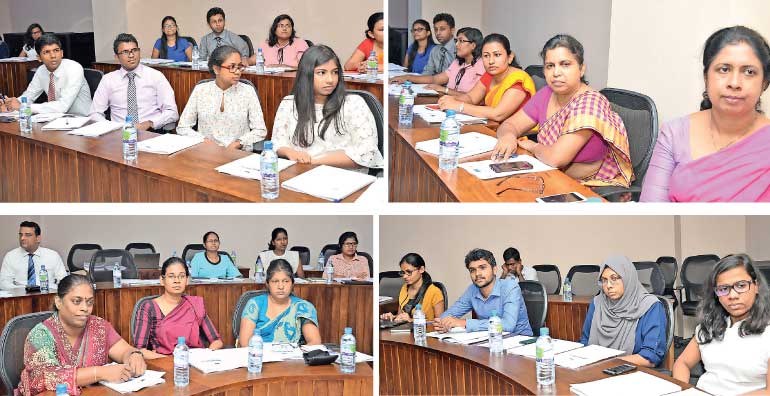Tuesday Feb 24, 2026
Tuesday Feb 24, 2026
Thursday, 25 May 2017 00:08 - - {{hitsCtrl.values.hits}}

By Charumini de Silva
With the growing trend of Free Trade Agreements globally, the Department of Commerce yesterday highlighted the importance of sustainable trade-related assistance to implement more preferential arrangements.
Addressing the third workshop on ‘Maximizing the use of FTAs’ under the EU-Sri Lanka Trade-Related Assistance Project conducted by the International Trade Centre (ITC) held at Miloda yesterday, Director General Sonali Wijeratne pointed out that there was a need for people to be better empowered to understand what it takes to have successful FTAs.
“The Department of Commerce has seen a dire need for this kind of inclusive approach for empowerment. We are not looking for one-off training events. What we want is to be having a continued effect in our national economy with sustainable training programs of this nature,” she added.
The four-year European Union-funded project worth Euro 8 million contributes to inclusive trade-led growth and regional integration on the four focus areas of a trade policy component, national export strategy, trade facilitation and quality infrastructure.
The project also helps Sri Lanka integrate the policies and regulatory reforms of the World Trade Organisation (WTO), allowing SMEs to make the most of potential opportunities resulting from the EU’s GSP+.
Noting that Sri Lanka has entered the arena of negotiating very ambitious FTAs with large asymmetrical economies like China, India and Singapore, Wijeratne said that the Government policy now was to enter into more trade agreements.
“In the world trade arena we know that there has been an impasse at the WTO in multilateral trading negotiations and hence there is an increasing configuration of regional trade agreements. This is a fact of life. In the absence of a smooth flowing multilateral realisation process, countries are now grouping into FTAs,” she stressed.
Therefore Wijeratne believes EU-Sri Lanka trade-related assistance will be complemented through empirical approaches as the project goes along.

The training program yesterday focused on the computable general equilibrium (GCE) models that are some of the most commonly used quantitative analytical techniques in trade which was well represented by 17 Government agencies with over 50 participating. The training was conducted by World Trade Institute Postdoctoral Researcher Eddy Bekkers.
ITC Associate Program Adviser Victoria Simon outlined three interventions of the program which include strengthening the capacity of Governmental offices involved in trade negotiations, supporting the private sector to understand the business implications of the ongoing trade negotiations as well as to support Sri Lanka in building a consensus on the options that should feature in FTAs’ negotiating stances.
“The objective of the workshop is to present the methods applied in quantitative trade modelling to determine the economic effects of FTAs. Our ambition is to provide the means to Sri Lanka to further inform the process of formulating trade negotiation positions and developing a coherent strategy throughout the various negotiating fora,” she said.

Simon pointed out that dynamic models in particular have been useful in enabling policymakers to address the potential negative short-term impacts of trade liberalisation by implementing policies allowing the reallocation of resources and capitalising on the positive effects. Models embed the essence of economic theory and distill them to ensure that policymaking is guided by a comprehensive understanding of the economic effects.
“A simulation of the model can confirm policymaker’s judgment and provide an estimate of the likely gains. Model simulations can surprise the policymaker and alert him to some of the unintended consequences of his action that would not have been clear without the economy-wide framework and discipline of economic models,” she stated.
Pix by Lasantha Kumara